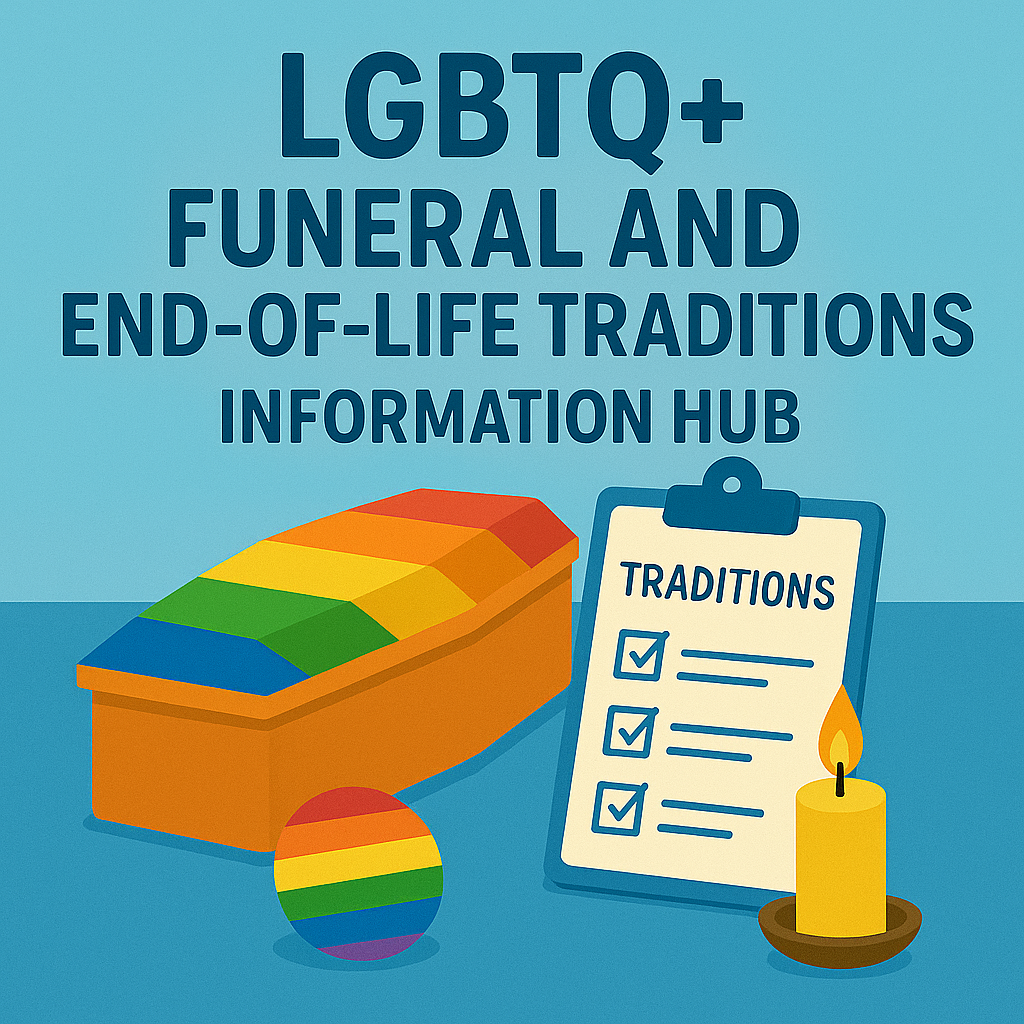Farewells that reflect identity and pride.
LGBTQ+ Funeral & End-of-Life Traditions
Understanding and honoring LGBTQ+ funeral and end-of-life traditions is essential for providing comfort and respect to those who follow these practices. Navigating the loss of a loved one is often complicated, and it is important to ensure that the deceased are treated with dignity and that the grieving process is supported by the community.

Key Things To Know
End-of-life planning and funeral traditions in LGBTQ+ communities often reflect a deep commitment to authenticity, chosen family, and affirming identity. Planning ahead can help ensure that a person’s true self is honored and protected—even after death.
- Affirming identity matters at every stage: Funeral services, obituaries, death certificates, and memorials should reflect the name, pronouns, and gender identity of the person who died. Planning ahead helps ensure those wishes are respected.
- Chosen family often plays a central role: Many LGBTQ+ individuals rely on trusted friends and chosen family for caregiving, decision-making, and memorial planning—especially when legal or biological family relationships are strained or absent.
- Advance directives and legal documents are essential: Clearly naming a health care proxy, power of attorney, and executor can prevent conflicts and protect your wishes if others try to override them.
- Pre-planning can protect against discrimination: Some individuals prearrange their funeral, burial, or cremation services to avoid providers or institutions that may not be LGBTQ+-affirming.
- Personal expression is often woven into ceremonies: LGBTQ+ end-of-life traditions frequently include music, poetry, storytelling, art, or celebration of activism that honors how the person lived and loved.
- Visibility and pride can be part of legacy: For some, funeral services are opportunities to reflect their identity and community openly. For others, privacy is a priority. Both choices are valid.
- Respecting privacy and disclosure is important: Not everyone was “out” in every part of their life. Survivors should consider how to handle public communication like obituaries and social media with care and consent.
- Grief in LGBTQ+ communities may carry added layers: Mourners may also be grieving social rejection, past traumas, or fears around erasure. Inclusive grief support and acknowledgment of the person’s full identity can help.
- Honoring the whole person means honoring their story: This includes their identity, relationships, struggles, joy, resilience, and the people they held close.
- Planning gives power back to the individual: By documenting your wishes and communicating with your chosen people, you protect your dignity and help create a meaningful goodbye on your terms.
Articles
Frequently Asked Questions
Disclaimer: The information provided on this website and by Buried in Work is for general informational purposes only and should not be considered legal advice. Please consult with a qualified attorney or subject matter expert for advice specific to your situation.




